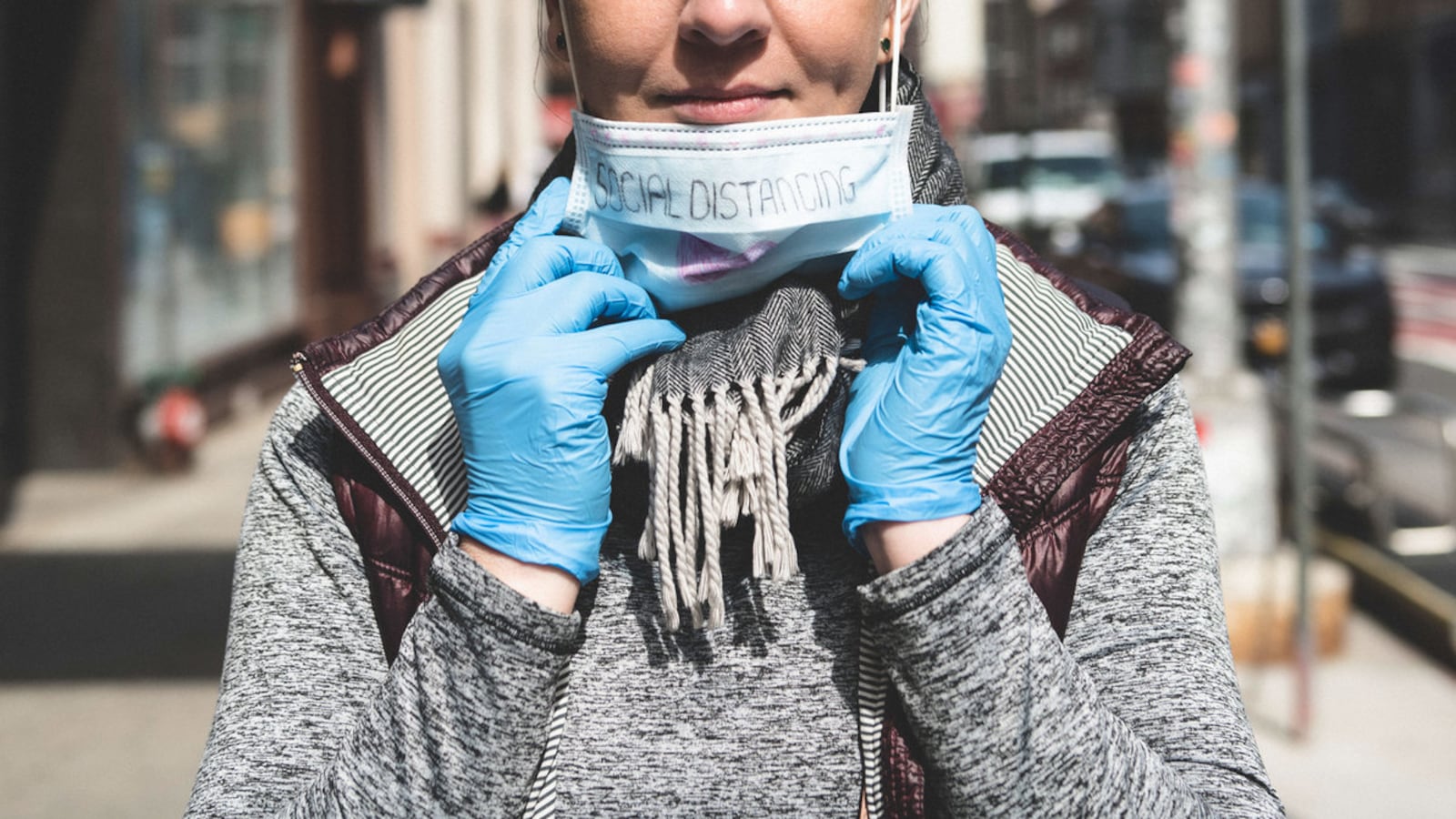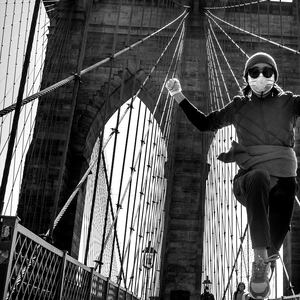As a teenager in Anand, Gujarat, in western India, Rushita Patel was obsessed with Gossip Girl. “It showed so much of the Upper East Side and the way people live in New York,” she recalls. “Like, are you kidding me? I was intrigued.”
Patel decided that she would end up in the city one way or another. Now 24 with a new public relations job, Patel lives in Washington, D.C. But in two weeks, she’ll pack up her apartment and head to central New Jersey, where she’ll stay with her brother until finding her own place on Manhattan’s East Side.
“I have manifested this dream since I was 5,” Patel told The Daily Beast. “Even though there’s COVID, that doesn’t stop my aspirations. I’ll figure a way around it.”
It is the classic story of a bright young thing heading off to the city. But such clichés go against the narrative that has emerged as the pandemic ravages New York. People have lost their jobs, or realized that they can do them from a place that’s not their sweltering walk-up. News stories and anecdotes alike point to the fact that the city is hemorrhaging residents.
Last week, the New York Times revealed that 420,000 people fled the city in the first two months of the crisis, with richer neighborhoods emptying the most. The New York Post reported that bookings to the city’s largest moving company were up 11 percent in March. That is a traditionally slow period for moves, implying that people were bolting away from the pandemic’s epicenter.
“The summer is typically the busiest season for renters moving in,” Nancy Wu, an economist at the real estate listing site Streeteasy, said. “People move to the city for internships, new jobs, or to synch up with their children starting school in the fall. This year, that’s not going to be the case. There will be a significant decline in demand.”
A decline, but not a total death. A Streeteasy representative also told The Daily Beast that “renters are returning to the market,” or at least searching around more. Views of listings rose by 15 percent in April.
Douglas Wagner, the manager of Brokerage Services at Bond New York, said that deal volume is down by 75 percent at the company, though they are seeing an increase in rental inquiries in the city.
“Last week, the pressure from people reaching out almost demanding that we resume showing has been turned up,” Wagner said. “The impetus to move seems really high—not sure if it’s because of pent-up demand.” (Like all realtors, Bond is not showing apartments in person due to orders from the state to shut non-essential businesses.)
Kobi Lahav, senior managing and sales director at Living NY, feels more optimistic. “A lot of families were already considering leaving, and coronavirus accelerated that decision,” he said. “On the flip side, a lot of young people want to live here and they see this as an opportunity. People leave, people come in. After any crisis, the composition of a city changes.”
“I just want to walk down the streets I’ve seen in so many videos,” Patel said. “I want to experience local life, walk around, watch people, experience the subway. I want to know what it’s like to be a New Yorker.” (Even if that is nothing—at least right now—that her imagination has conjured.)
Wolfgang Ruth just graduated from Michigan State University and will start a media job next month. (He is also a former colleague of this writer.) Though the gig is remote for now, he hopes to move to Brooklyn in August.
“I understand that privilege allows people to move, but I think that working from home in Michigan with three other brothers, my parents, and a new puppy is so overwhelming,” Ruth said. “Moving into my own apartment and quarantining there with a roommate will be better for me to focus on my first job out of college.”
Ruth lived and interned in the city for the past two summers and found the environment liberating, especially compared to his Midwestern Catholic upbringing. “Being gay was the one reason I wanted to move to New York,” he said. “Moving fulfills the dream of exploring not only New York but also myself.”
One of the first times Ruth fully felt accepted was at the annual Pride March. (This year’s festivities have, of course, been cancelled due to the pandemic.) It was that day Ruth knew he had found his home in New York.
“I was free to walk down the street and be 100 percent, completely who I am,” he said. “Going back to Michigan after my first summer in the city was a tease. My family is supportive of me, but I have to watch myself in certain places, dial it down to 99 or 95 percent.”
Derek Ross, 22, graduated from Marquette University in Milwaukee a few weeks ago. He also interned for Citibank last summer; the position led to a full-time job. It’s remote for now, but he plans to move with a roommate he found on Facebook. Like Ruth, he also did not realize how much he liked the city until he returned home to Wisconsin.
“I’m back home now, I’m bored because there’s not really that much to do,” Ross said. “You never notice that growing up because you don’t know any better. In New York, I can do whatever I want.”
During his time in the city, Ross also realized what many transplants come to recognize as scripture—New York is less about the things you do and more about the people you do them with.
“I’ve always been someone who’s had a hard time meeting new friends,” he said. “I’m a shy person, but it’s so much easier in New York. Maybe because there are so many people everywhere.”
The typical places to meet are shuttered for now. Ross was a collegiate runner, and he hopes to join a track club in the city. He does not know when it will be safe for that kind of group to convene again.
Still, like current New Yorkers, these transplants hold on to hope that the city will rebound. Their dreams depend on it.
Ruth believes that “it is the communities and individuals of New York—the ones working for equal rights and human rights—that gives moving to and living in New York another sense of pride.”
“It might be a while until I get to experience the real New York,” Patel allowed. “But that means I get to gradually see everything come back to life [and] experience what really makes New York so special. I have a lot of compassion for New York even though I’ve never been and I know it’s the people, their energy, and the special community that makes it unique. Now, I get to participate in rebuilding it. That’s pretty special to me. Like being part of history of a city I’ve always admired, you know?”
One of her first orders of business, post-pandemic? “I will definitely be taking an acting class,” Patel said. “I’ve always, always wanted to be an actress. It would be stupid not to go for that opportunity. I’ll regret it if I don’t give it a shot in New York.”






